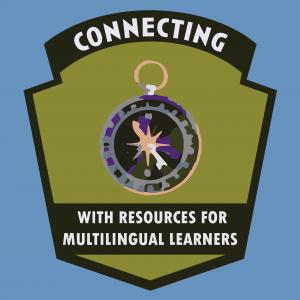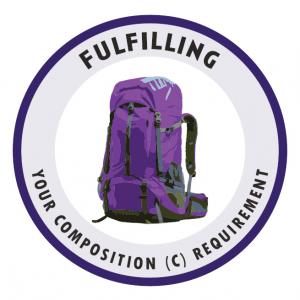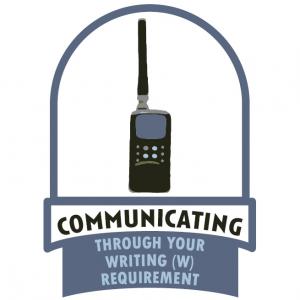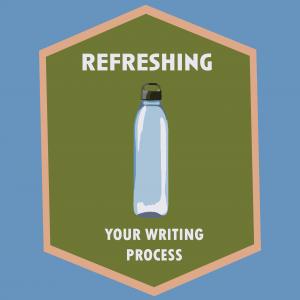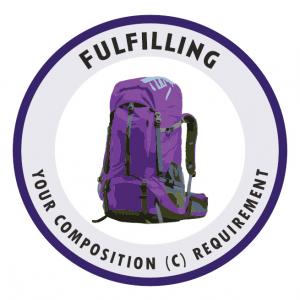

The Composition (or "C" credit) is a general education requirement that all UW students must take. C courses emphasize how to organize and express your ideas effectively, and they are capped to 23 or fewer students, meaning you will have lots of interaction with and support from your instructor. For basic info on the C Requirement, see this page from Undergraduate Advising.
Most students earn their C credit during their first year at UW, before they go on to satisfy their Additional Writing (“W”) requirement. While most students take ENGL 131 to satisfy their C requirement, you have other options for your C course. This page can help you find a C course that speaks to your interests.
Are you interested in...
... Composition?
In English 131, you'll develop skills to organize and express your ideas clearly and effectively. At the end of the quarter, you'll submit a portfolio that includes selected revised pieces and all the other writing you completed during the course. You will also write reflections on how these projects helped you engage with the course outcomes.
Watch former ENGL 131 students talk about their experiences:
 More Info
More Info
ENGL 131 courses are listed on the PWR courses page.
... Writing in the Humanities or Social Sciences?
Are you passionate about literature or the arts? Majoring in a social science field like American Indian Studies, Anthropology, or International Studies? Then come find a C course that helps you to explore writing practices common in these fields.
Watch former ENGL 111 students talk about their experiences:
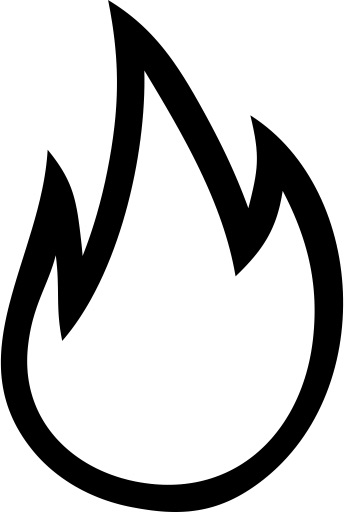 Hot Tips
Hot Tips
Sections of ENGL 111 are focused on different themes related to literature. You'll use literature and narratives to study writing as social action and language as tied to identity, culture, and power.
ENGL 197, 198, and 298 are sometimes linked to large lecture courses in various humanities and social science disciplines, including American Ethnic Studies, History, and Architecture. You sign up for both classes at the same time, and in the writing course you will read, think, and write about the content you are learning in the lecture course. Students who take linked writing courses report that they learn more and get better grades in both courses!
 More Info
More Info
- Look for ENGL 111 at the Program in Writing and Rhetoric (PWR) courses page.
- Look for these courses at the Program for Writing Across Campus (PWAC) courses page:
- ENGL 197 or 297 (linked and unlinked courses are offered)
- ENGL 198 or 298 (linked and unlinked courses are offered)
- Writing in Comparative Literature: C LIT 240
... Multimodal Writing?
Multimodal writing goes beyond text and includes audio, images, video, performance, and other ways of communicating. Curious about digital communication? Want to explore visual or oral communication, digital media, or other genres above and beyond traditional academic writing? Then consider these courses.
Watch former ENGL 182 students talk about their experiences:
More Info
Look for these courses on the PWR courses page:
- ENGL 182: Multimodal Composition
- ENGL 282: Intermediate Multimodal Composition
- ENGL 382: Special Topics in Multimodal Composition
... Science Writing?
Field notes. Research reports. Public engagement. Effective communication in modern science comes in many forms. These courses will hone your craft of communicating clearly, precisely, and flexibly in various formats and prepare you for a career in the doing of science.
Watch students talk about their experience in Science Writing courses:
 Hot Tips
Hot Tips
ENGL 199 and 299 are usually linked to large lecture courses in various scientific disciplines, including Biology, Astronomy, and Environmental Sciences. You sign up for both classes at the same time, and in the writing course you will read, think, and write about the content you are learning in the lecture course. Students who take linked writing courses report that they learn more and get better grades in both courses!
 More Info
More Info
Look for these courses at the Program for Writing Across Campus (PWAC) courses page:
- ENGL 199: Interdisciplinary Writing – Natural Science
- ENGL 299: Intermediate Interdisciplinary Writing – Natural Sciences
- ENGL 296: Critical Literacy in the Natural Sciences
... Technical Writing?
Have you ever wondered why some instruction manuals and explainer guides are impossible to follow, while others are totally seamless and straightforward? Want to improve your cover letters, resumes, professional emails, and research proposals, and learn to write in technical styles like software documentation—but still be mindful of ethics and social justice? Check out our Technical Writing courses.
Watch former ENGL 288 students talk about their experiences:
 Hot Tips
Hot Tips
- Technical writing courses are not open to first year students.
- Technical writing can be helpful for STEM majors, but students in any discipline are welcome to register.
- The English department will be launching a minor in Technical & Professional Communication soon! Check back for more info during the 2024-2025 school year
 More Info
More Info
Look for these courses at the Program for Writing Across Campus (PWAC) courses page:
- ENGL 288: Introduction to Professional and Technical Writing
- ENGL 390: Careers in Technical Communication
- ENGL 391: Grant Writing
- ENGL 392: Technical & Professional Editing
- ENGL 394: Big Data & Surveillance
- ENGL 480: Workplace Research Methods
- ENGL 482: Scientific & Medical Communication
- ENGL 396: Software Documentation
... Community-engaged Writing?
Community-engaged writing courses provide an opportunity to work with community-based organizations (CBOs) and to write about your experiences. You will typically get experience working on-site with community partners on important social issues, while also learning how to write and communicate in relevant genres, like grant writing, public-facing texts, and research on social justice issues that you care about.
Watch former ENGL 121 students talk about their experiences:
 Hot Tips
Hot Tips
The Community Engagement & Leadership Education (CELE) Center has more information on ways to combine service with your learning.
 More Info
More Info
Look for ENGL 121 at the Program in Writing and Rhetoric (PWR) courses page.
F.A.Q.s About the "C" Requirement and "C" Courses
Where can I find a big list of C Courses?
A: Many of the above options are combined in the following lists:
- Program in Writing and Rhetoric (PWR) courses – PWR is an English department writing program that offers first-year writing and other composition courses.
- Program for Writing Across Campus courses – PWAC is an English department writing program that offers technical writing, and writing courses linked with various disciplines.
I’m an upper division student and still need my C. Any advice for me?
All Program for Writing Across Campus courses (including technical and professional communication) are open to upper division students, and are actually good choices for students who have declared a major and are immersed in a particular discipline. If you are looking for general composition courses, check out ENGL 281, 282, 381, or 382 in the Program in Writing and Rhetoric.
I’m a multilingual student. Any advice for me?
Check out the page on this website, Connecting with Resources for Multilingual Learners! We describe lots of resources, including writing studios that you can take to support you while you’re enrolled in a C course, language circles, and more.
I’m an EOP student. Any advice for me?
The Educational Opportunity Program offers the C courses ENGL 109 + 110 (both courses must be completed in order to earn "C" credit). Taking the entire 109-110 sequence also earns you your DIV requirement, your C requirement, and 5 W credits! You can search for ENGL 109 or 110 in My Plan, or reach out to your adviser to get help signing up.
I’m an Honors student. Any advice for me?
The University Honors Program describes all the most up-to-date C courses on their courses page.
What if I took an AP or IB course in high school?
The UW grants general elective credit for AP and IB English, but they cannot be used to satisfy either the English Composition or Additional Writing requirement.
What if I am a transfer student and want to see if my writing course from another institution satisfies my C requirement?
English Composition courses that transfer as at least 4.5 credits may be used to satisfy this requirement and should be marked "C" on your transfer evaluation. You can also combine two 3-credit English Composition courses. If you completed an English Composition course that didn't transfer as a UW-designated English Composition course, and is not marked "C," consult an adviser.
If you took your English Composition course(s) pass/fail at another college before you were a UW student, you are allowed to count it toward the requirement. Also, if the course was available only on a non-graded basis, you are allowed to count it toward the requirement no matter when you completed it.
You can check the UW Equivalency Guide for Washington Community and Technical Colleges to determine which courses from Washington community colleges count toward the UW's English Composition requirement; they are marked in the lists with a "C."
If you feel you have satisfied your Composition requirement in high school or at a previous institution, please reach out to your adviser, or reach out to Undergraduate Advising if you do not have a departmental adviser yet.
I’m interested in thinking more about strategies for satisfying my C requirement (when, how, etc.).
The English department has a webpage on English Composition strategies that may be of use, whether you are a First Year student, a transfer student, or a continuing student.
Where can I find formal policy language about the C requirement?
Undergraduate Advising has a webpage describing the English Composition requirement. An adviser can also tell you more.
